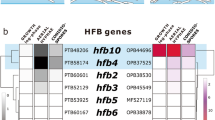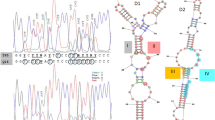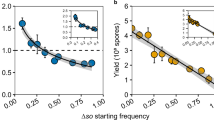Abstract
F. L. Drayton and J. W. Groves have recently1 presented a scholarly and eloquent plea for a return to the original definitions of the terms homo- and heterothallism as proposed by A. F. Blakeslee2. When their arguments are carried to their logical conclusion, the authors are forced to admit: “It is undoubtedly true that the fungus that originally suggested the idea to Blakeslee is not heterothallic in the sense in which he defined the term”. I contend that an error in logic has escaped these authors in allowing them to arrive at such a conclusion.
This is a preview of subscription content, access via your institution
Access options
Subscribe to this journal
Receive 51 print issues and online access
$199.00 per year
only $3.90 per issue
Buy this article
- Purchase on Springer Link
- Instant access to full article PDF
Prices may be subject to local taxes which are calculated during checkout
Similar content being viewed by others
References
Drayton, F. L., and Groves, J. W., Mycologia, 44, 119 (1952).
Blakeslee, A. F., Science, 19, 864 (1904).
Blakeslee, A. F., Bot. Gaz., 42, 161 (1906).
Whitehouse, H. L. K., Biol. Rev., 24, 411 (1949).
Author information
Authors and Affiliations
Rights and permissions
About this article
Cite this article
KORF, R. The Terms Homothallism and Heterothallism. Nature 170, 534–535 (1952). https://doi.org/10.1038/170534a0
Issue Date:
DOI: https://doi.org/10.1038/170534a0
Comments
By submitting a comment you agree to abide by our Terms and Community Guidelines. If you find something abusive or that does not comply with our terms or guidelines please flag it as inappropriate.



